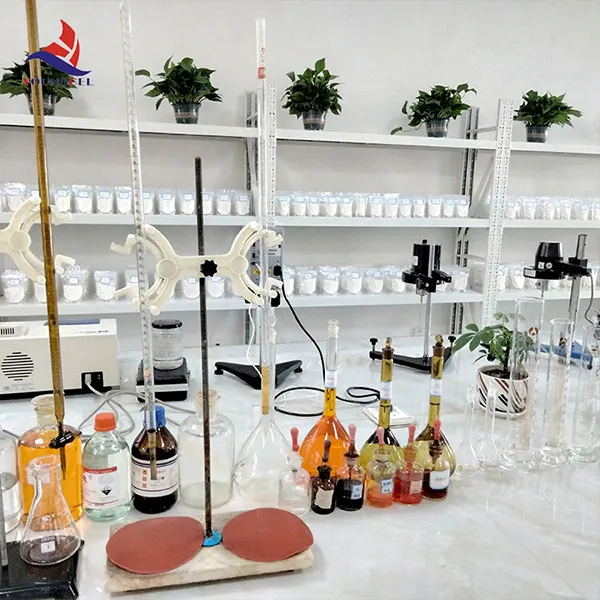The Importance of Adhesives for Tile Installation
When it comes to installing tiles, whether for a kitchen, bathroom, or any other area in a home or commercial space, the choice of adhesive is critical. The right adhesive not only ensures that the tiles are securely fixed but also affects the longevity and appearance of the finished project. This article delves into the different types of adhesives available for tile installation and their respective benefits.
Types of Tile Adhesives
1. Thin-set Mortar This is the most commonly used adhesive for ceramic and porcelain tiles. Thin-set mortars are composed of cement, fine sand, and water-retaining agents. They are applied in a thin layer, which enables quick setting and is suitable for most indoor and outdoor tile applications. Thin-set mortars can be further differentiated into standard, modified, and unmodified versions, each designed for specific conditions.
2. Mastic Mastic is a premixed adhesive that is ready to use right out of the bucket. It has a thicker consistency compared to thin-set mortar and is typically used for wall tiles or areas that do not encounter moisture, such as backsplashes. While it is easier to work with, mastic may not be ideal for certain environments, as it can soften when exposed to excessive water over time.
3. Epoxy Adhesives Epoxy adhesives are known for their superior bonding strength and resistance to moisture, chemicals, and temperature fluctuations. They are particularly useful for installing tiles in high-traffic areas or environments prone to spills. However, the application process can be more complex and may require specialized training.
4. Self-Leveling Adhesives For uneven surfaces, self-leveling adhesives can provide an optimal solution. These adhesives help create a smooth, level substrate for tile installation, ensuring that the tiles lay evenly without lippage. Self-leveling compounds are mixed with water and poured over the surface, forming a flat layer that hardens over time.
adhesive for tile

Factors to Consider
When selecting an adhesive for tile installation, it is essential to consider several key factors
- Tile Material Different tiles require different adhesives. For example, natural stone tiles may need a specific type of thin-set mortar that is compatible with their porous surface.
- Environmental Conditions Areas exposed to moisture and humidity, like bathrooms and outdoor patios, require adhesives that can withstand these conditions without breaking down.
- Tile Thickness Thicker tiles often necessitate stronger adhesives to support their weight and maintain stability.
Conclusion
Choosing the right adhesive for tile installation is crucial for ensuring a successful and long-lasting outcome. By understanding the various types of adhesives available, their specific benefits, and the environmental factors at play, homeowners and contractors can make informed decisions that will enhance the durability and aesthetics of their tile projects. Investing time in selecting the right adhesive ultimately leads to a more professional finish and a superior tile installation that will stand the test of time.
-
Rdp Powder: Key Considerations for Wholesalers in the Building Materials IndustryNewsJul.08,2025
-
Key Considerations for Wholesalers: Navigating the World of Hpmc - Based ProductsNewsJul.08,2025
-
Hpmc Detergent: Key Considerations for WholesalersNewsJul.08,2025
-
Key Considerations for Wholesalers: China Hpmc For Tile Adhesive, Coating Additives, Concrete Additives, and MoreNewsJul.08,2025
-
Crucial Considerations for Wholesalers: Navigating the World of Construction MaterialsNewsJul.08,2025
-
Key Considerations for Wholesalers Sourcing Additive For Cement, Additive For Concrete, Additive For Putty from Additive Manufacturer Shijiazhuang Gaocheng District Yongfeng Cellulose Co., Ltd.NewsJul.08,2025




